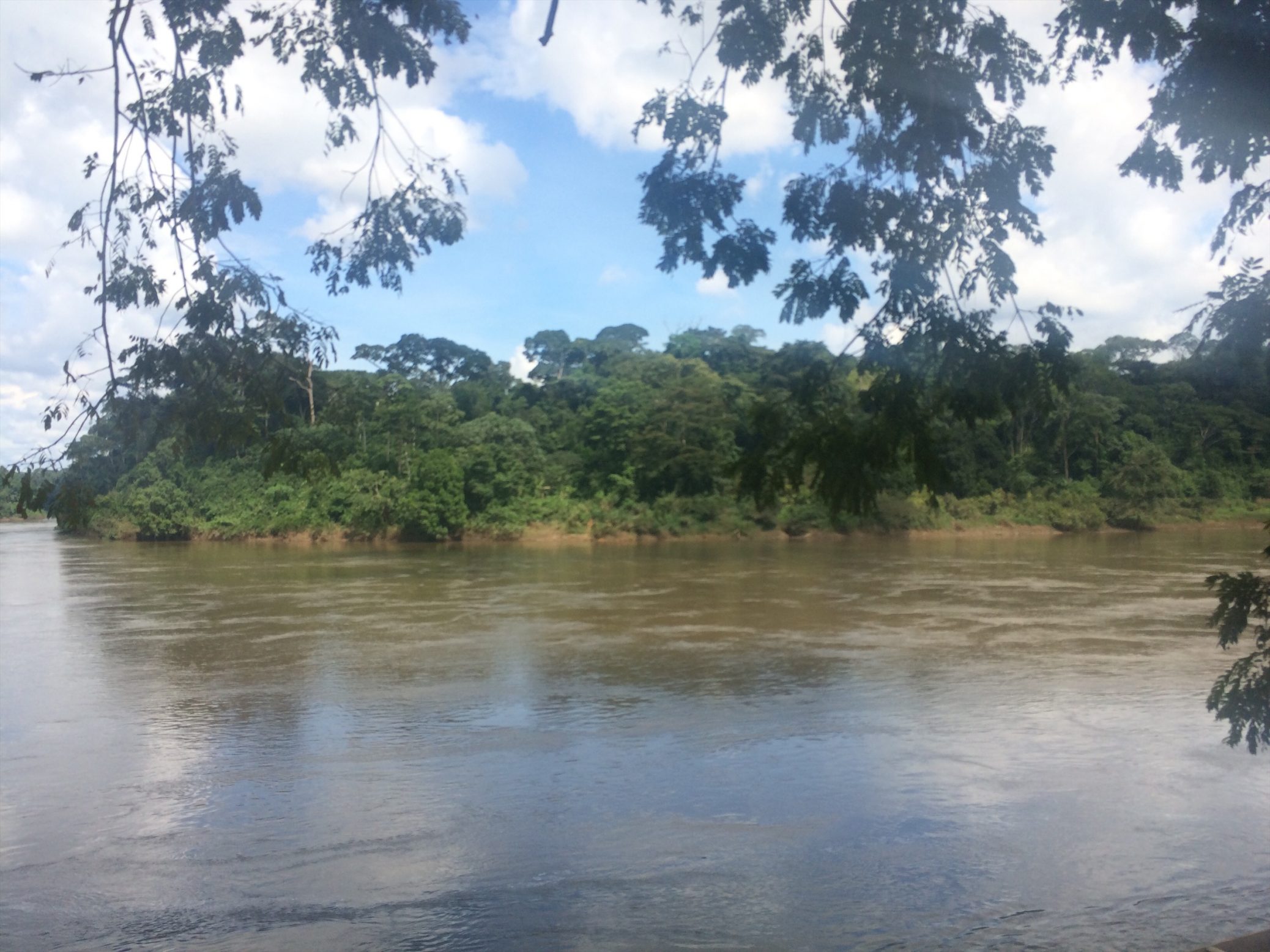Josephene Ayuk fled Cameroon—with her four children, and a few other women from their village—on the evening of Unification Day, October 1st, 2017.
The week before had been particularly hellish. There was a permanent army post in her village in the Eyumodjock region, but the soldiers stationed in her village were not there to keep the peace. Ostensibly directed to remove secessionists, the army instituted curfews, burned buildings and farms, and killed citizens without any trial; two days earlier, soldiers shot and killed a civilian just outside her house, and dragged four men out of the house. Like every other young Anglophone man the soldiers could find, they were tagged “Ambazonian secessionists,” bundled into a truck, and taken away. All the other men for miles—including Ayuk’s husband—had fled to less-militarized villages or into the Northern Cameroon. Since the curfew was established a few weeks earlier, soldiers entering homes—in search of “secessionists”—had become routine, as had the extrajudicial punishment of the people they found. Soldiers poured sand or water into their food, burning buildings and farms just for their entertainment.
“As the men ran away, we thought it would get better,” Ayuk explained to me, in the room she shares with her four children and husband in Agbokim in Cross River, Nigeria (one of eight rooms in the building donated by the deputy governor of Cross River state). “It didn’t. I had to leave the village because they had destroyed our farms and there was no food to feed our children. Nothing could be worse than living in my own home.”
And so, on Unification Day—as the sounds of gunfire from her village and others filled the air—they walked for three hours through the forest to reach the border between Nigeria and Cameroon, a river which is called the Manyu River in Cameroon but which becomes the Cross River when it crosses into Nigeria. There were no boats on the river—by presidential order—but by chance, a man arrived with a speedboat to transport his own family across into Nigeria; he agreed, and so, without any money but just the clothes on her back—nothing but her children and her life—she left Cameroon.
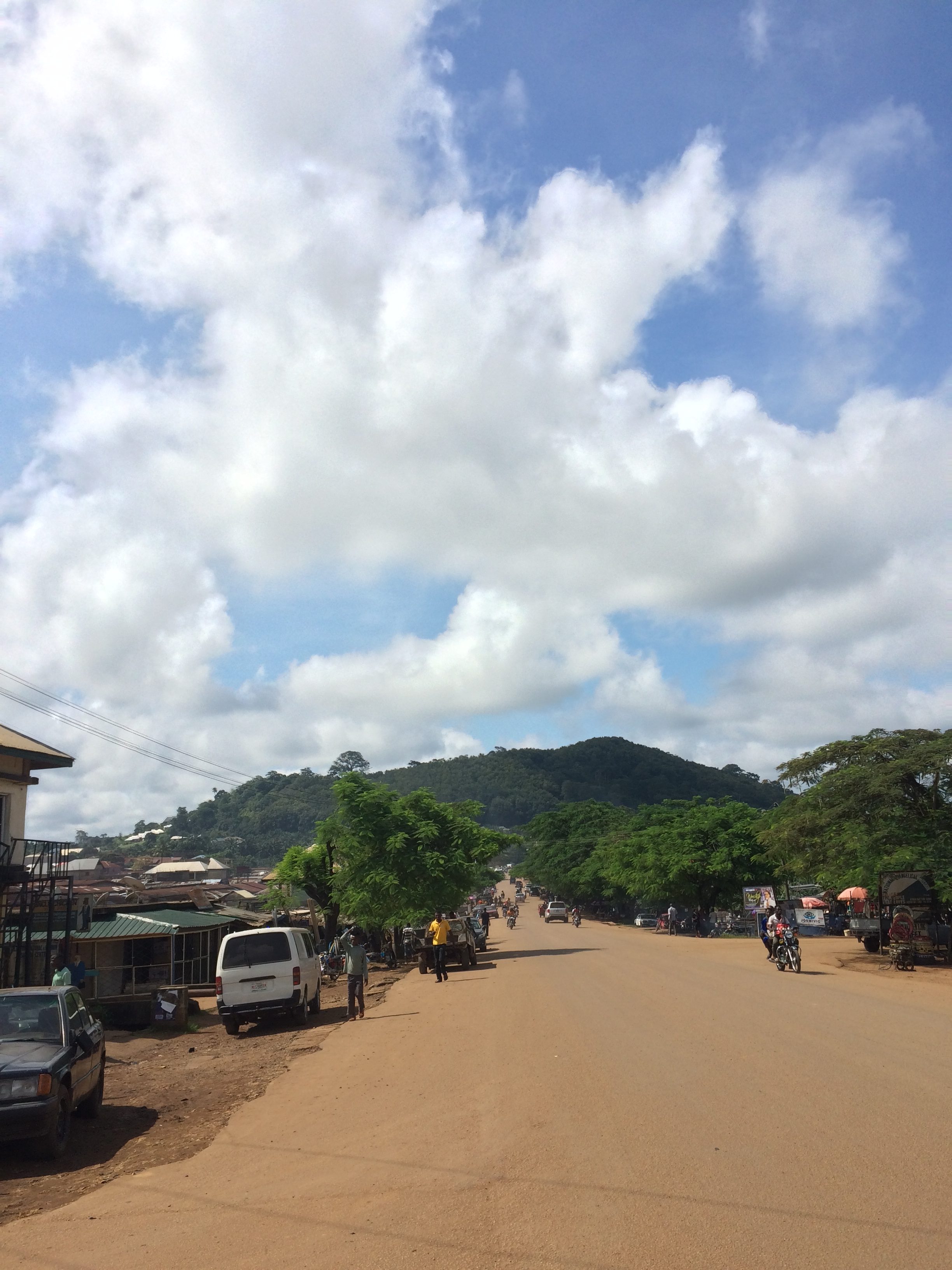
It’s still early days—only a year since she fled—but Ayuk and her family have perhaps settled more easily in Nigeria than many refugees around the world are able to.
They have traveled a long way, in one sense; in leaving their homes, they became “refugees,” like the more than twenty thousand Cameroonian refugees registered in Nigeria now (though there are thought as many as 64,000 refugees in the border region as a whole). But in another sense, they have not traveled far at all: Ayuk reconnected with her husband in Agbokim, at the waterfalls in Ikom—the Eastern part of Cross river, close to the Nigeria-Cameroon border—in a part of Nigeria where the Etung language spoken is the exactly the same as the Ejagham language spoken in the part of Southern Cameroon that Ayuk and her family fled from. Before colonial times when the land was divided by the Europeans, these people belonged to the same tribes and villages. Though only a sixty-kilometer journey to freedom, poor roads cause the journey to stretch into days, especially since the official border is a no-go for the men. But in Nigeria, it’s like they have not left home. The language is the same, and the people speak English too.
Ayuk was a pharmacist in Cameroon, but today, she works odd jobs in Nigeria to feed her family. For a while, she earned 500 naira [$1.38] a day working on farms in the Ikom area; these days, she works with her husband to make toothpicks, earning only a little more.
The current conflict began in 2016, after a consortium of Anglophone teachers and lawyers began protesting their marginalization in Cameroonian society and government, complaining that the government imposes the French language on their schools and courts to marginalize the Anglophone region of the country, the part of the country that had been called “Southern Cameroons” by the British when it was their colonial possession (about 20% of the country, by population).
The roots of the conflict, however, go back to Germany’s late entry into imperialism in Africa, when the continent was mostly divided between England and France, and to Germany’s early exit. Between 1884 and 1916, what is now Cameroon was a German colony called Kamerun; at the end of the of the first world war, German colonies were invaded by French and British forces and—as part of the Treaty of Versailles—what is now Cameroon was split between the French and British governments, with the largest part given to France.
When la Republique du Cameroun gained its independence from France on the 1st of January, 1960, the British-ruled portion of the country—which had been administered as a part of Nigeria, and had adopted British-based legal and educational systems—was still under British rule. Nigeria would not gain her independence from Britain until the 1st of October. And so, since the British argued that Southern Cameroon would not be economically viable as an independent nation, Anglophones in Cameroon were given the option of joining the independent Federation of Nigeria or the independent Republic of Cameroon; after a plebiscite, a majority elected to join with what, on October 1st, was declared the Federal Republic of Cameroon.
Officially, Cameroon is unified, and has been since that first Unification Day, in 1960; officially, the country has two official languages, French and English. But despite constitutional bilingualism, official documents are often only published in French, excluding those with limited French proficiency from government jobs and appointments. And when a consortium of lawyers, activists, and others protested their marginalization—calling for the government to return to the autonomy granted to Southern Cameroon in 1971—the leaders of the consortium were arrested and the crowd tear-gassed. The Cameroonian government declared war on the Cameroonians it tagged as separationists, but the situation only escalated; by December, the courts and schools in the Anglophone regions of Cameroon went on strike.
And as the conflict in Southern Cameroon seems poised to devolve into civil war, many have fled.
Today, sixty-nine-year old Pa Tachen Assam—a farmer now living in Nigeria as a refugee—assures me that Southern Cameroon and La Republique du Cameroun are not the same people:
“[They] that decided that we would go with La Republique failed generations. The government was changed to a Unitary system and eventually a country that has two different people with different languages and cultures became La Republique. The English portion of Cameroon is systematically wiped out.”
Over the years, step by step, the foundations of the 1961 federalism have been chipped away; in 1972, President Ahidjo declared that the Federal Republic of Cameroon was now a unitary state and in 1984, the United Republic of Cameroon officially became La République du Cameroun. In 1996, the constitution was changed to remove any reference to what had been officially called the British Southern Cameroons or any reference to official autonomy it had previously enjoyed.
(When I asked why Southern Cameroon had gone with La Republique, Pa Assam explained that “The Igbos maltreated us when we were administered with Nigeria by the British. They dominated our markets and did not practice fair trade with them. We were not interested in more problems after independence.”)
Protests began specifically against Anglophone common law courts run by Francophone civil law judges—judges who barely understood English much less the customs of the local people—as well as against exclusion from the civil service, where there are far fewer Anglophones (who earn significantly lesser than their Francophone counterparts). But over the years, the quality of life in Southern Cameroon has declined drastically. For all the petroleum found in Southern Cameroon, the actual petrol that people use to power cars and generators had to be smuggled over the river and through the forests from Nigeria, because it was cheaper than the petrol sold in the country. “When you go to Yaounde,” as a thirty-one-year old pastor from South Cameroon named Valerie Ayamba told me, “things like petrol, electricity, and mobile phone credits cost different from in Beau.”
Still, Pa Assam explained to me that this conflict and desire for a separate nation didn’t start in 2016: “When we found that the government of Ahmadou Ahidjo was not going to treat us right,” he said, “we decided we wanted to be our own country. We took our matter to the UN that gave us over to the government of Cameroon. But they have not heard us.”
The fate of the Southern Cameroon might have been sealed when the two stars on the flag were replaced with one, in 1975. But it’s been in response to terrible treatment by the Paul Biya presidency that a new round of protest has been sparked; after twenty-five years of rule, Biya removed term limits from the constitution in 2008, even after being credibly accused of rigging the 2004 elections.
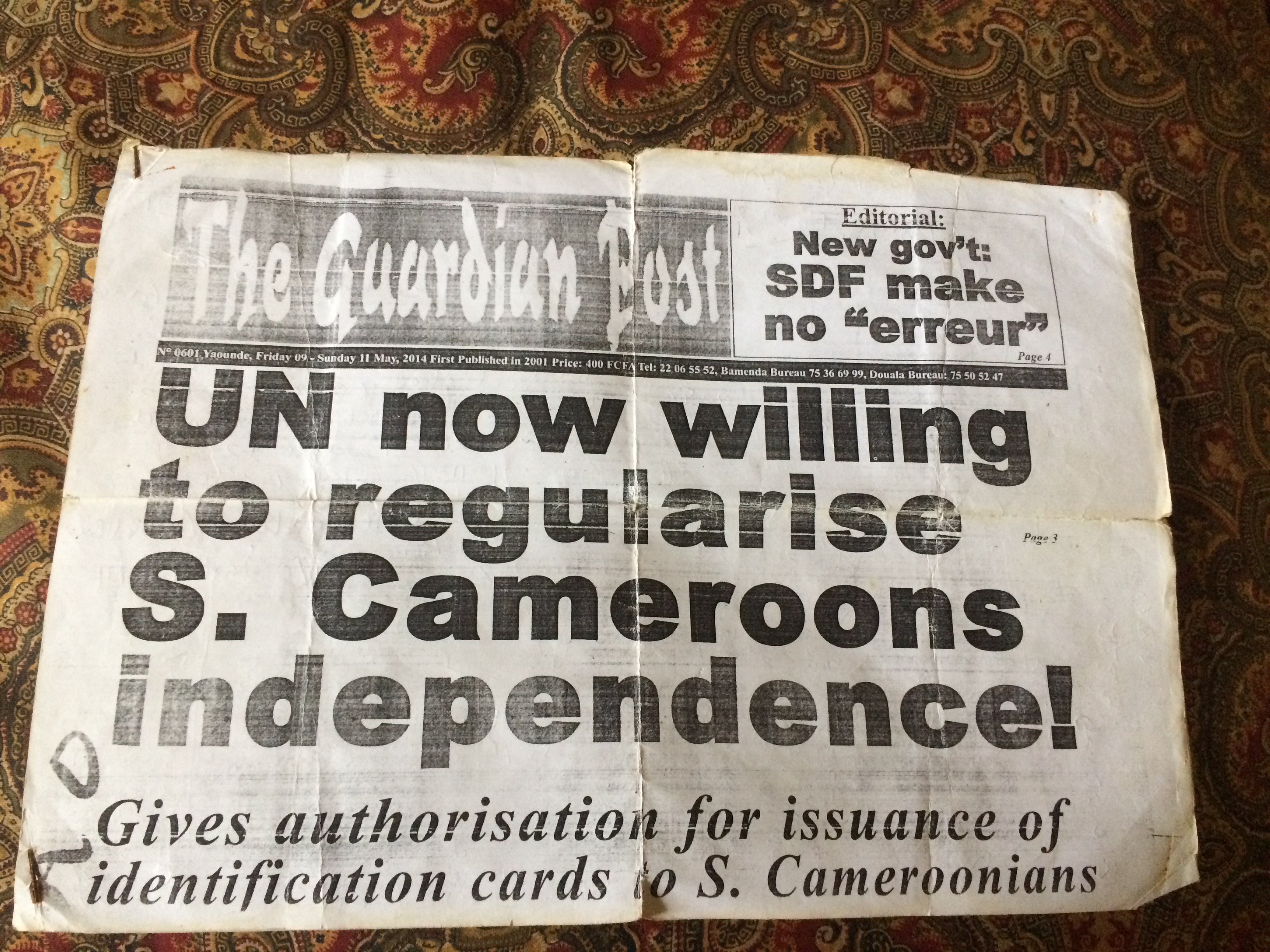
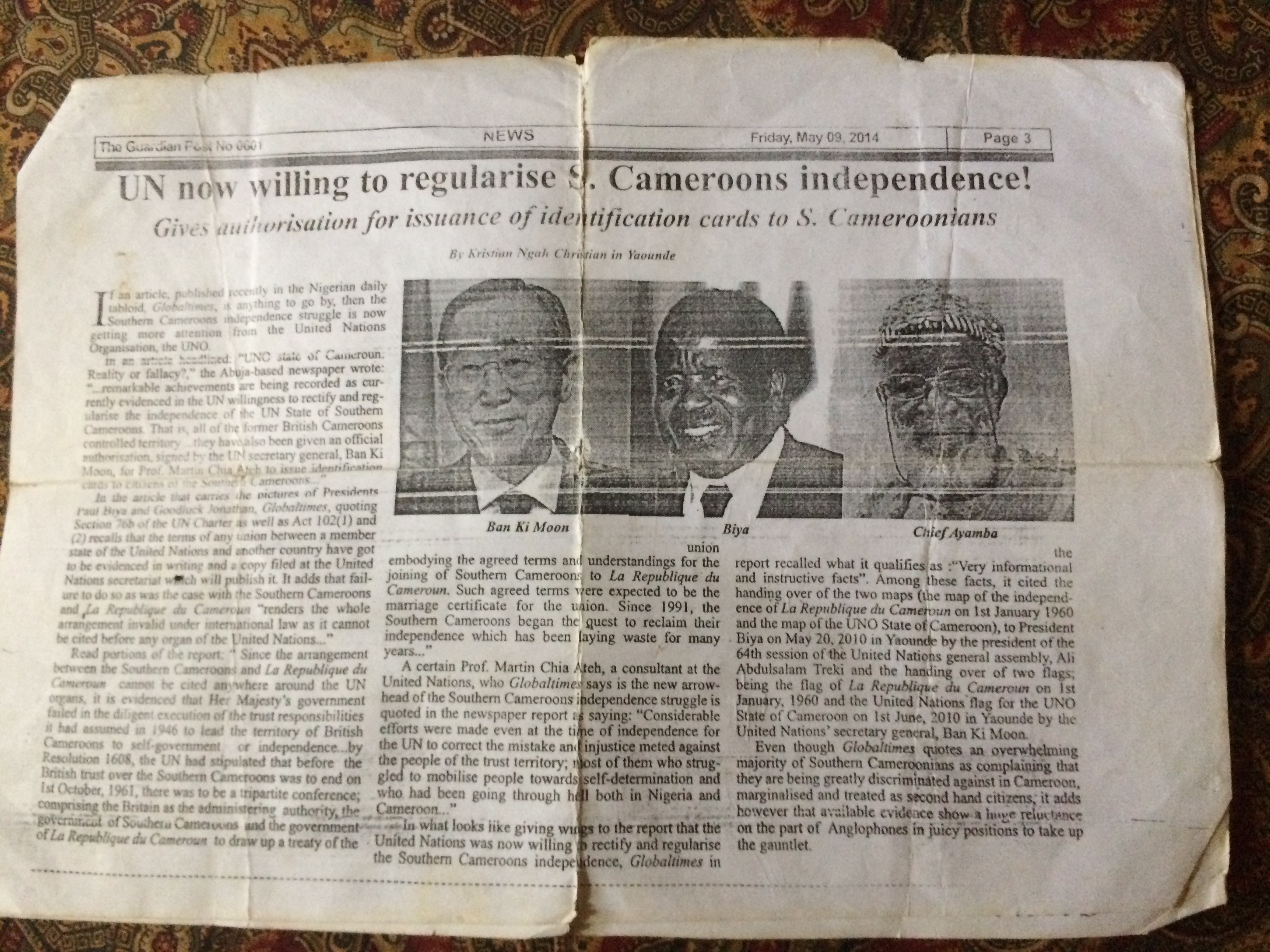
As the violence against Anglophones has intensified, people have looked to the United Nations resident in Yaounde, but—as Pa Assam and Ayamba tell me—UN officials are in Biya’s pocket. The United States Ambassador to Cameroon, Peter Barlerin, met with Biya and demanded that the government look into the “targeted killings, detentions without access to legal support, family, or the Red Cross, and burning and looting of villages,” urging Biya to think of his legacy and to use Nelson Mandela and George Washington as models. But such demands are toothless; the Cameroonian government blasted the American ambassador on radio in Cameroon, leading to speculation about a breakdown of diplomatic relations.
In 2013, a consortium of pressure groups morphed into the Ambazonian Government Council, held elections, and declared Sisiku Ayuk Tabe Julius as the interim President of Ambazonia. However, in January, he and six others were detained in Nigeria and has since been deported to Cameroon, where he and his government-in-exile will presumably stand some sort of trial.
When entering communities, the francophone soldiers sometimes chant.
“Biya tok, you say no.
Sisiyku tok, you say yes.
You wan build country on top country
You wan put floor on top floor.
Armour car, put fire for that building.”
(Biya talks, you say no; Sisyku talks, you say yes; You want to build a country on top of a country; Put a floor on top of a floor; Tank, burn down that building.)
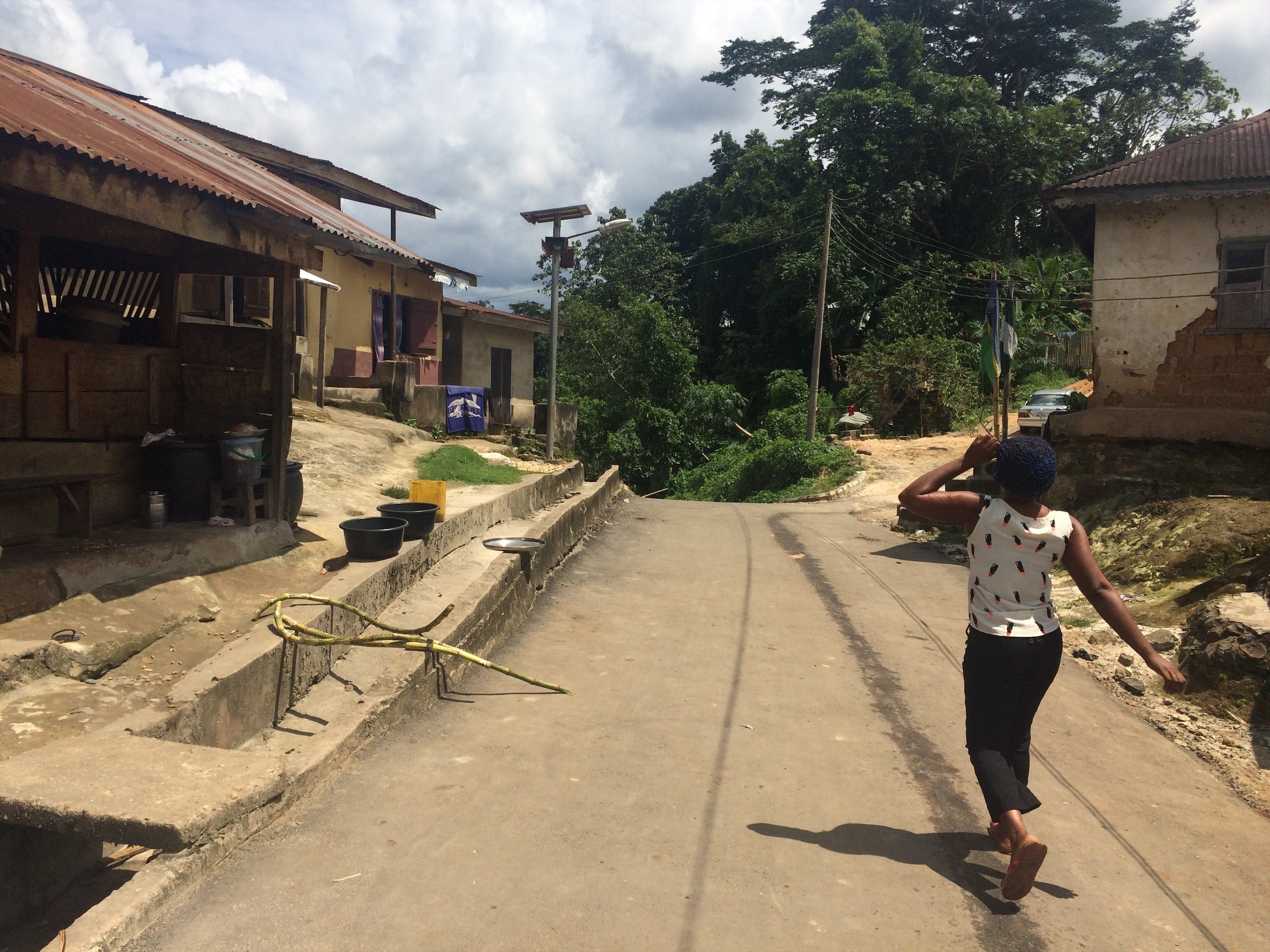
Twenty-five-year old Fred Assam is wanted by the Cameroonian army today, named by the government as a leader of the youth resistance. He spent over four days walking through the forest before getting into Nigeria. “The Cameroonian soldiers came into my village to round boys up,” he said; “To them, everybody was a separatist. They shouted saying we wanted to build another country where there’s a country.”
He had been a veterinary doctor and joined in the walk to protest civil service segregation in the government: because of the region’s poverty, the civil service is one of the main employers in the nation, and from which anglophones are shut out. “Anglophones take the exams to get into the system, but they are never called up,” he said, anger plastered on his face. “But the military is worse, they shout Armour car, put fire for that building [Armored tank, burn down that house] and a person’s whole life is gone.”
Assam is one of seven refugee leaders for the Southern Cameroonians and has been liaising with the UNHCR and the Nigerian government to get relief materials to people in other settlements and hard to reach regions in Nigeria. Recently, the UNHCR made a call for refugees to relocate to the Ogoja refugee camps, and what was initially a call for voluntary relocation became mandatory when, in June, the UNHCR stopped sending relief materials to the settlement at Agbokim and around Ikom. But because of Ayuk Tabe Julius’s abduction—and because the Cameroonian army has been entering Nigeria to “retrieve” refugees—the Agbokim settlement is scared to leave for a central location from which they might be taken back to Cameroon.
It’s not all gloom in Nigeria, however. Janet Tanyi and Fred Assam got into a relationship in Nigeria and are now engaged. Tanyi was a student of education at the University of Beau, but she’s happy there’s a safe place for herself and her family, especially her brother. When she’s not making the chips she sells, she’s taking care of Victory, Assam’s niece, and other children in the settlement. “I’m alive, my brother is here, my mother is in another settlement, and I’m with Fred. If we stayed in Cameroon, who knows? Our dreams would have ended. I’m going to become someone great and back at home in Ambazonia, it’s just a matter of time.”
At the moment, Tanyi is preoccupied with getting her brother and other children back into school. Some of them have not been in school for over two years.
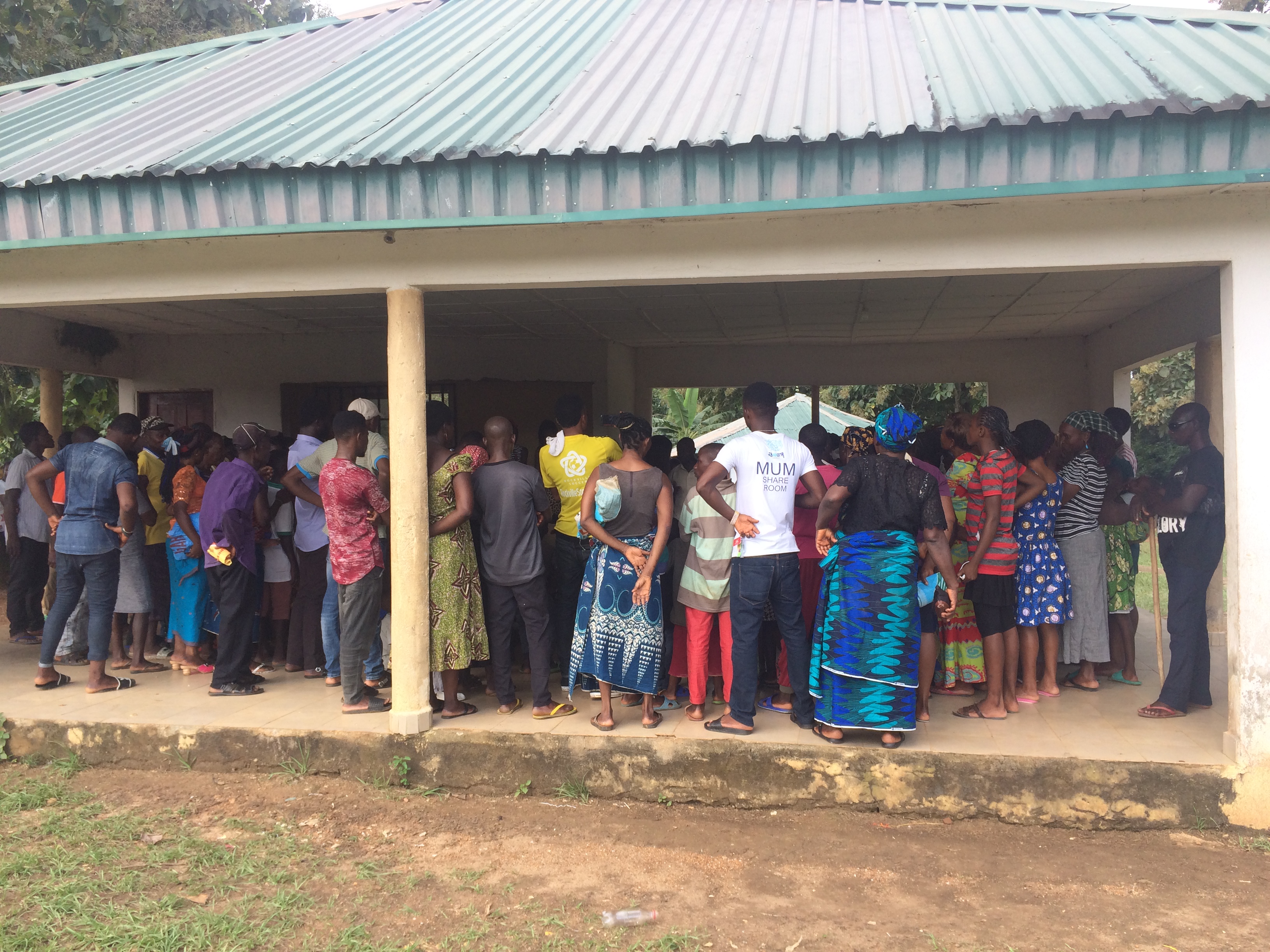
On the 7th of October, Presidential elections were held in Cameroon, and the election period brought with it a high influx of refugees into Nigeria. “There is a fear that there will be more violence in the anglophone regions closer to the French parts of the country,” Assam explained; “Already, a lot of the villages close to the Nigerian border are the empty and the battlefield for the Cameroonian army and Ambazonian Defence Forces.”
In Nigeria, few are looking to return to La République du Cameroun, with its single star on the flag. Sama—a fighter in the Ambazonian army, recuperating from injuries sustained fighting the Cameroonian army—tells me that he only wants to return to an independent Ambazonia. The stakes are too high to quit: “The younger boys have seen how their fathers and brothers have died and are ready to fight. They are ready to carry guns until Cameroon says we can go our way.”
For Ayuk, Nigeria is slowly becoming home. She has been looking for a way to work with her pharmacy degree to improve her family’s financial fortunes and has become a community leader within the tight-knit community of Ambazonian refugees at Agbokim, helping others where she can. Like Assam, Tanyi and other members of the settlement and even in the camp in Ogoja, she does not see herself returning to La Republique. On Sundays, at church—in a building donated by the local government, close to waterfalls—there’s a joyful scene, against the backdrop of music that reminds me of Nigerian music from the early 2000’s, heavily influenced by the music of the Congolese Awilo Longomba. After a service, the adults have a community meeting to share relief materials donated by a Nigerian broadcaster. Children gather around a huge tray of food.
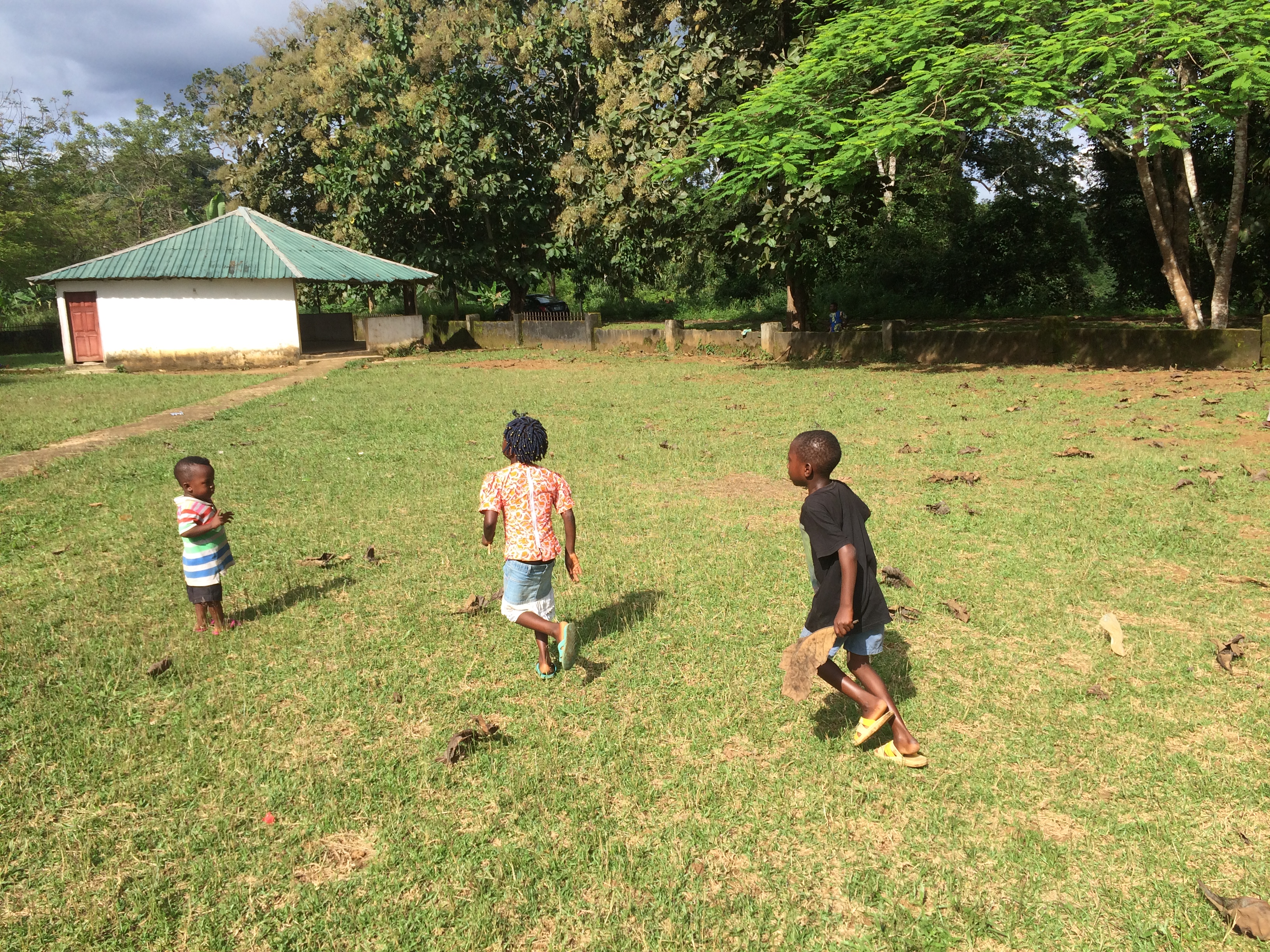
Oluwatosin Adeshokan

